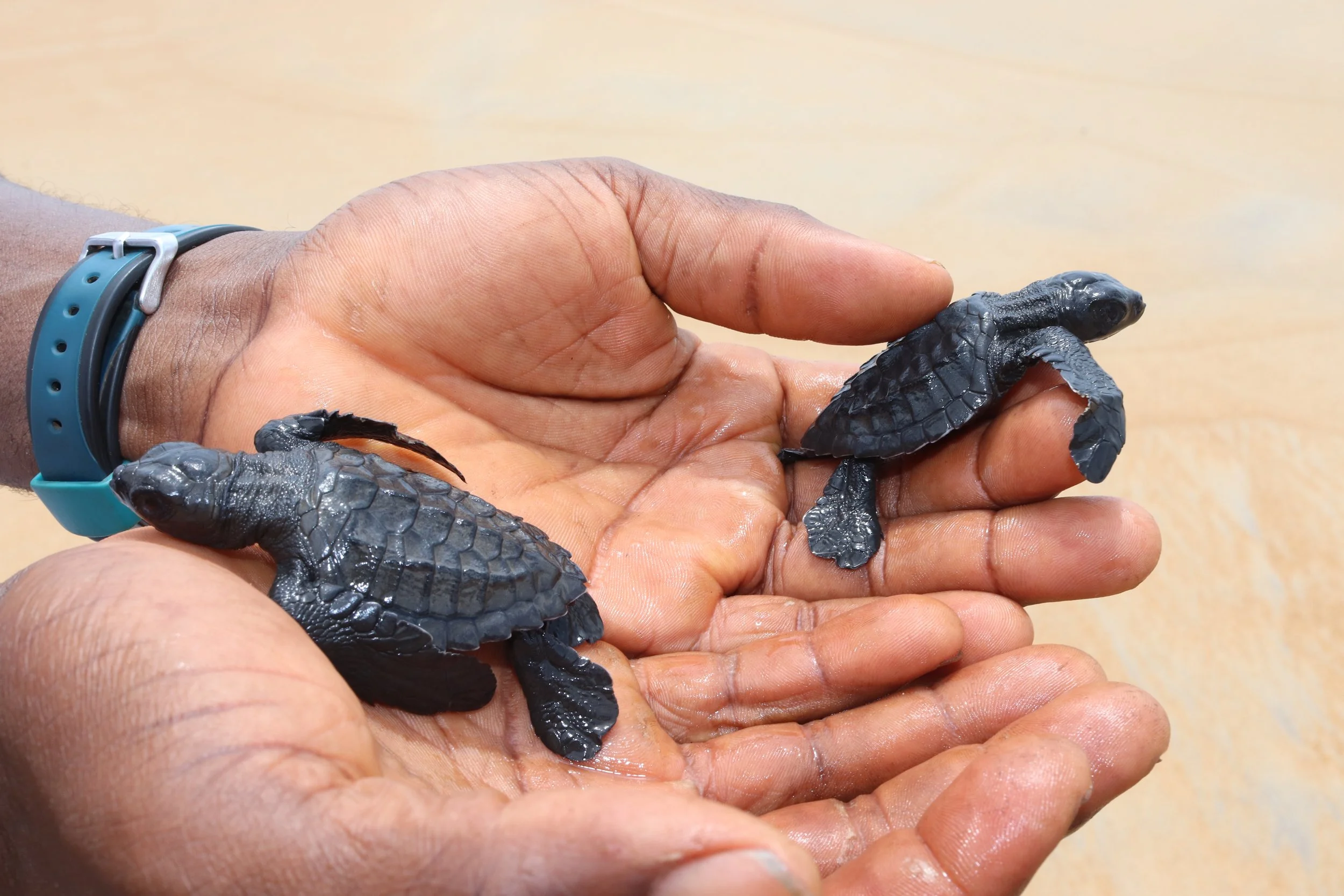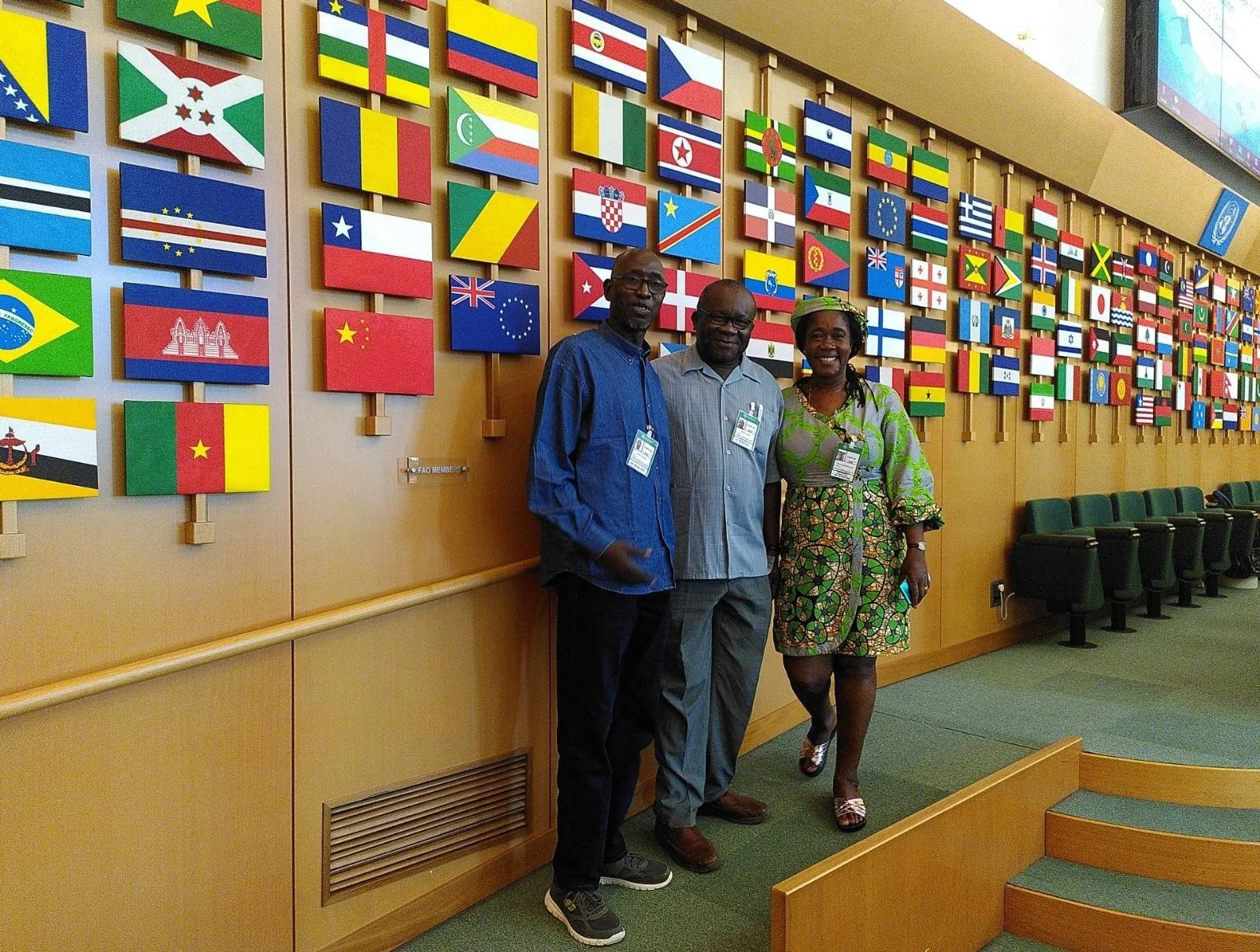Since 2010, Senegal has set up CLPAs as a fisheries co-management system. They aim to resolve problems at local level and involve fishers in monitoring, control, and surveillance. However, there is a lack of resources for this system to be implemented effectively. An article by journalist Paule Kadja Traoré.
"The European Union must be credible and demonstrate that EU taxpayer’s money is well spent in support of sustainable fishing”
From 8 different African countries, representatives of coastal fishing communities participated to a seminar on the external dimension of the CFP hosted by the EU Long Distance Fisheries Advisory Council (LDAC) in Sweden and then travelled to Brussels where they exchanged with decision-makers from the Commission and the European Parliament.
OLVEA imports fish oil from West Africa: Greenwashing in action, transparency at a standstill
An episode of ARTE's investigative magazine Sources, entitled “Salmon: a story of smoke and mirrors,” traces the journey of fishmeal and fish oil produced in Mauritania coming to Europe.
Destructive and polluting Deep Sea mining should not get the green light, say fishers
Cacophony over Cameroon - EU sanctions the country for IUU whilst supporting a value chain involved in IUU
Industrial fishing operations in Cameroon’s waters are dominated by trawlers of foreign origin in joint ventures with local entrepreneurs where 83% of these vessels have been found to be connected to entities in China. These trawlers are allowed to exploit fish stocks beyond 3 nautical miles of the coastline, including the highly prized shrimps.
“Nothing about us without us”: fishers draft rules of conduct for how to work with them to save the oceans
"Conservation is not for conservation's sake. Conservation is for us: we need a fair place for communities."
Driven by a local NGO, which is committed to community development as well as turtle protection, Côte d'Ivoire's first marine protected area (MPA) is an example of how conservation can be achieved while respecting the rights and access of artisanal fishing communities to their traditional fishing grounds.
To go far, you have to be together. The Ivorian women in artisanal fisheries can tell you how
This article by Andréa Durighello analyses, through the example of the Ivory Coast, the value of women's cooperatives and associations in African artisanal fisheries: in the professionalisation of the trade, in strengthening capacities, in representing women in professional organisations and, above all, in responding unitedly to the hazards of life.
The number of deaths of African artisanal fishers is devastatingly high, says new research
China's capture of Ghana's fishing industry is threatening food security
Even though it is illegal for foreign vessels to fish in Ghana, over the last decade Chinese-owned vessels have proliferated. Journalist Kwabena Adu Koranteng investigates how business people well connected with power act as fronts for Chinese fishing industry. Ghana loses 50M€/year but more concerning is the fact that severe overfishing is impacting food security and nutrition in the country.
COFI 35: “Never has there been such enthusiasm for small-scale fisheries”
“People think the fishing business is for the illiterate, but they cannot be more wrong”
Small-scale fishers' "little babel" speaks with one voice at UN oceans conference
MEPs call on the Commission to use fisheries partnership agreements as a lever for regional management in West Africa
The European Parliament's Fisheries Committee has highlighted the impact of the fishmeal industry in Mauritania on the food security of West African populations and called on Mauritania, the EU and neighbouring countries to support and "initiate an international dialogue" for the creation of an RFMO for shared stocks.
Ghana artisanal fishers facing the perfect storm of climate change and IUU fishing
Guinean Artisanal fishermen complain that Asians are fishing in the area reserved for them
A local initiative to save turtles to turn into the biggest co-managed MPA in Côte d'Ivoire
The Grand Béréby Marine Protected Area will cover about 2400 square kilometers of ocean and will include a 54 km stretch of coastal water, to be “free from industrial fishing”. Besides vital fisheries, the area is home to endangered populations of leatherback, olive ridley and green sea turtles and threatened populations of sharks and rays.





















